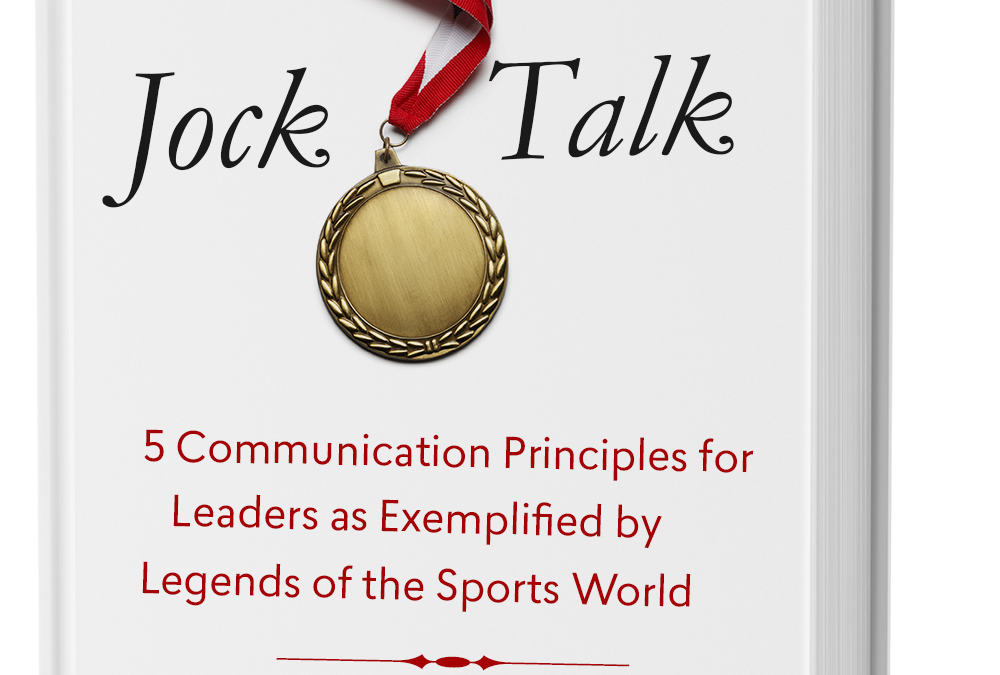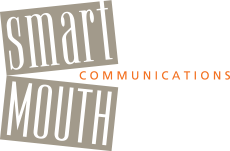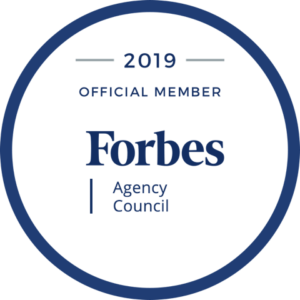

Short & Sweet
Let’s face it, when you hear those three words – in relation to a meeting, speech or presentation – it’s like music to your ears, right?
Now ask yourself this: When was the last time you complained because a speaker or a meeting finished early? Probably never? Let’s go with never.
Regardless of how brilliant or compelling a speaker’s material is, audiences get downright annoyed when speakers are long-winded or go over their allotted time. In these cases, even if the content is stellar, the takeaway is a less-than-stellar impression. When people use the words “brief and to the point” to describe a speaker or presenter’s performance, it is usually high praise.
In fact, in my coaching practice, executives often come to me for help in “becoming more concise” or “making a point succinctly.” Those are common goals for coaching engagements, and it’s because the inability to be more concise or to make a point succinctly can be a career blocker. The opposite is also true; brevity can enhance a career.
Think about being that person, the one who finishes early. You know you appreciate it, so your audience surely will as well!
[Excerpted from Jock Talk: 5 Communication Principles for Leaders as Exemplified by Legends of the Sports World, http://amzn.to/1vkcxjz]
The Golden Rule: Do Unto Others
This may sound harsh, but you’re not that special that when you get up to speak everyone is captivated the entire time, has the patience to sit through your lengthy deck of slides, and will be perfectly content to allow you to run over your allotted time. You know how hard it is to be 100% attentive, and you know you don’t like it when other speakers kill you with more slides than you could possibly remember and talk for longer than scheduled. It’s quite likely that you are more often the audience than you are the speaker, and so consider yourself an expert on what audiences like and don’t like.
The single best guideline for any speaker to use in preparing for a talk is The Golden Rule: do unto others as you would have them do unto you. Plan and choreograph your presentations accordingly …
If you don’t like or can’t pay attention to a screen with dense text slides in a darkened room for a prolonged period of time, then don’t do it to your audience;
If you can’t sit through a 50-minute talk that isn’t broken up with visuals or video or interaction, then your audience can’t either;
If you get lost during talks when speakers ramble and provide no guidance as to where they are going or what their point is, then your audience will be lost without your guidance;
If you like stories and anecdotes, then your audience will like them too;
If you like someone who is brief and succinct, then your audience will like that too; and
If you like speakers who stay more connected with their audience than with the lectern or screen, then your audience will appreciate that as well.
Your preferences are your own best litmus test for what your audience might like, so remember that!
Make Your Younger Self Proud!
 I’m going out on a limb here and speculating that when you were a kid, you never said:
I’m going out on a limb here and speculating that when you were a kid, you never said:
“When I grow up, I’m going to copy my boss in everything he/she does.”
“When I grow up, being mediocre will be good enough for me.”
“When I grow up, I’m not going to push myself or change anything.”
If, indeed, you did say any of these things, read no further. This article is not for you.
If, however, I’m right and you never said any of these things, then let’s talk.
As kids, we see our best selves in the future. Dreaming big comes with the territory of being young, idealistic, and optimistic. To wit, all the little kids who believe they’ll be a professional athlete, a movie star, or just plain rich and famous … despite the odds.
So, now you’re a grown-up, a professional, and your career matters to you. You’re ambitious, and you have your eye on something … big, next, consequential. Therefore, making a good impression and presenting yourself confidently and competently are important.
In terms of how you present yourself, in person and online, are you your best self now? Do you show energy and passion? Are your ideas articulated in a crisp, concise, impactful way? Have you adapted your delivery style to the new frontier – and the relatively small square allotted to you – on Zoom/WebEx/Teams/BlueJeans or whatever platform you’re using?
Here are 3 thoughts for you, so that you can make your younger self proud:
- Step it up, and step out. Yes, the world has changed, how we meet with one another has changed, and so it’s time to up your game! Even if you’re someone who “owns the room” during in-person meetings and presentations, you may not be owning your little square on-screen. Try some new things, and make yourself a little uncomfortable so that you stand out. Check out this video for some virtual presenting tips. The last thing you want to do is the bare minimum, or what everyone else is doing, online. Figure out your thing(s) for doing it differently and well!
- Give time back to your audience. We’re among friends, so let’s admit it: Sitting through sessions online, whether they’re casual meetings or more formal presentations, is tedious and puts everyone’s attention spans to the ultimate test. While it has been my hue and cry for a very long time, #brevity has been upgraded from urgent to being a full-blown emergency. Be brief, concise, to the point, even shorter than the occasion calls for so that you make your point, you’re memorable and you’re invited back. There’s nothing quite like giving time back to your audience. Trust me, if they want to hear more from you, they’ll let you know. Leave ‘em hungry!
- Add new tricks to your bag. Based on the types of meetings you lead or participate in, find interactive software tools you can incorporate into your online sessions. Does this force you to learn and try something new, even though you might encounter a glitch or two when you initially deploy it? Yup. (And does it potentially involve a new account login somewhere? Yup.) But the alternative is same-old same-old, mediocrity, and dread on the audience’s part. Your audience will love and learn from the interaction, and you will hold onto their itty bitty slivers of attention by using new tricks!
Making a good impression and engaging audiences is more challenging online, there’s no question about that. The good news is, we’re all pioneering this new frontier together and so the opportunities to try new things and stand out from our peers are wide open. Bottom line: You can keep the blinders on and wait out the pandemic until you return to in-person meetings (that is, if we return to those). Or you can seize the moment, pony up to make some changes, and differentiate yourself.
I would venture to say the seizing the moment would make your younger self really proud.
Be Disruptive!
I think it’s high time for speakers and presenters to be disruptive. And here are a few ways to begin …
Do you really need to fill the time allotted to you?
Really? Or can you be brief? Why fill it just because you can? So what if you were told you have 45 minutes? Do you like to sit and listen to someone talk for 45 minutes straight?
Do you really need your laptop and your PowerPoint?
Really? Or can you do the prep work ahead of time that enables you to engage, connect, and make a point without employing a “deck”? So what if that’s how you and your colleagues have always done it? Do you like waiting for someone to power up and plod through a series of slides? You’re not that special, no one likes waiting for you either.
Do you really need text slides for visual reinforcement?
Really? Or can you use images that illustrate your points? Who’s the text for anyway? You or them? Do you like to read paragraphs on a screen while someone is talking? Are you impressed with presenters whose slides are dense with text? Do you remember what the slides said and what the speaker said? Doubtful.
Do you really need to open with niceties and housekeeping?
Really? Or can you open with your point, your desired outcome, your call to action, and save the display of manners and protocol for the end? Wouldn’t you rather capture and focus Audience attention right away? You know how your own attention drifts when other speakers start with the usual, expected, mundane stuff … And guess what? People drift when you speak too.
Do you really need to show how smart and experienced you are?
Really? Or do you need to show how smart you are about your Audience? Disruption rule #1: Get over yourself. Literally. Think about your Audience. Really, I mean it, think about them. Deliver something in length, style, and content that will connect with and be beneficial to your Audience!
Be disruptive. Question authority. Question norms. Make it about your Audience.



